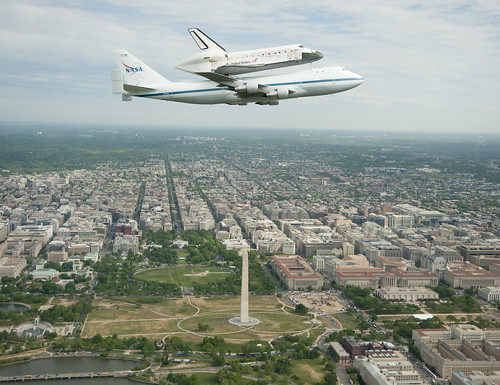
Photo Credit: (NASA/Robert Markowitz)
The space shuttle Discovery’s final voyage over the Washington, DC area (and over my head) Tuesday morning was a spectacular sight. Unfortunately, it was also a spectacular reminder of the declining emphasis on science and mathematics in the American education system.
Yes, the space shuttle program had many faults. Its fatality rate was alarmingly high. It probably even deserved to be ended – but its end serves as a powerful symbol of our muddled priorities. Over the years, the space program inspired many people to become science, engineering and mathematics professionals. So whatever your views on federal spending happen to be, it is telling when there is about eighty times more money allocated for military spending (most of it to support our increasingly bizarre nation-building and intervention in the Middle East) than for NASA.
This attitude trickles down to the school system. American students’ science and math scores have remained very stagnant compared to those of other developed, and even developing, nations around the world. The problem starts with teachers: we have fewer and fewer qualified and passionate professionals teaching science and math because the inspiration and the incentives just aren’t there. The few who do exist are not sufficiently rewarded by the system.
Granted, the United States continues to have a good environment for encouraging tech innovation – private sector technology titans like the late Steve Jobs and Bill Gates are ample proof of this. Sadly, we’re not doing a good job inspiring the next generation of innovators.

